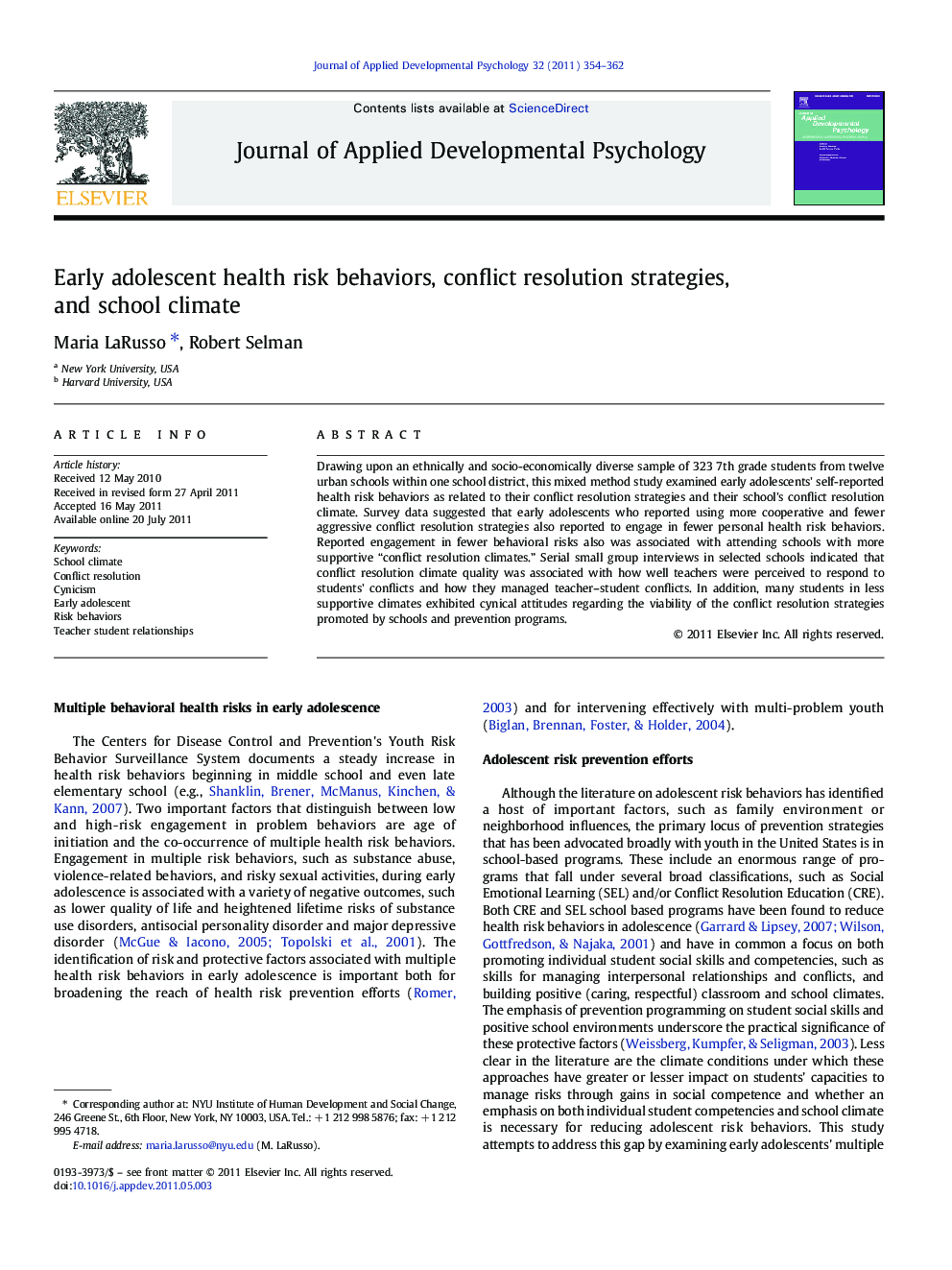| Article ID | Journal | Published Year | Pages | File Type |
|---|---|---|---|---|
| 359834 | Journal of Applied Developmental Psychology | 2011 | 9 Pages |
Drawing upon an ethnically and socio-economically diverse sample of 323 7th grade students from twelve urban schools within one school district, this mixed method study examined early adolescents' self-reported health risk behaviors as related to their conflict resolution strategies and their school's conflict resolution climate. Survey data suggested that early adolescents who reported using more cooperative and fewer aggressive conflict resolution strategies also reported to engage in fewer personal health risk behaviors. Reported engagement in fewer behavioral risks also was associated with attending schools with more supportive “conflict resolution climates.” Serial small group interviews in selected schools indicated that conflict resolution climate quality was associated with how well teachers were perceived to respond to students' conflicts and how they managed teacher–student conflicts. In addition, many students in less supportive climates exhibited cynical attitudes regarding the viability of the conflict resolution strategies promoted by schools and prevention programs.
► More mature conflict resolution strategies associated with fewer risk behaviors. ► More supportive “conflict resolution climates” related to fewer risk behaviors. ► Climate quality associated with how well teachers respond to conflicts. ► Students cynical about conflict resolution in non-supportive school climates.
